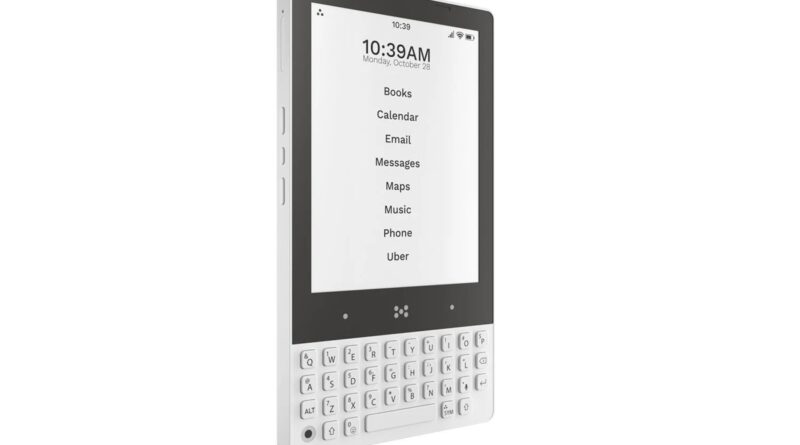The Minimal Phone’s E Ink Screen Will Bore You Out of Doomscrolling
Android 14 running on an E Ink screen with cellular connectivity and a QWERTY keyboard? Life is no longer but a dream for the backers of the Minimal Phone, which started shipping out units to its faithful supporters nearly a year after going viral as possible vaporware. It’s good timing, considering we’re all in the market for a device to help us log off more these next four years. E Ink is hardly the perfect solution to being chronically online, but it can frustrate you enough to put the device and log off the internet altogether.
The Minimal Company’s Minimal Phone has a 4.3-inch touch E Ink screen with a backlit black and white display. It’s a device meant for text over graphics, though it can handle those, too. A full QWERTY keyboard embedded harkens back to the carefree Bush Jr. Administration days, with 0.015mm travel—nails will need to stay short for this to be comfortable to type on. The software runs Android behind the scenes so that you can install apps from the Google Play Store. The launcher is curated to showcase only the necessities, including email, your crypto wallet, Google Maps, and even rideshare, an option exhibited in promotional marketing. The phone supports wireless payments like Google Play and has GPS. There’s a 3,000 mAh battery to power it all and even a 16-MP camera to capture photos, though you’ll have to inspect them on another display.
Here’s where E Ink devices start to show their limitations: the processor inside the Minimal Phone is a MediaTek Helio G99, a chip used in sub-$200 devices sold overseas. It’s not blazing fast, especially not what you’re used to on your smartphone. The other caveat is that E Ink isn’t fast. It lags and has long refresh times, especially with the apps you’d be using that are developed for responsive, high-resolution screen devices. I already had a harrowing experience with the Onyx Boox Go 6. I still use it to read comics and books late at night, but that’s after preparing myself psychologically for its screen with an abominably slow refresh rate.
The Minimal Phone promises a “distraction-free” experience, with its marketing heavily emphasizing living intentionally. In this case, limiting your exposure to apps and headlines that cause even the slightest body responses is the intention and the way to cut down on your wearable’s stress meter. But you don’t need to spend $400-$500 on a phone that does that. The E Ink tablet I mentioned starts at about $150, and it’s a more approachable price point than a whole smartphone dedicated to the cause. Android also offers a host of minimalist launchers that achieve the same effect by dialing down the Home screen to only a handful of essential apps and simple colors.

